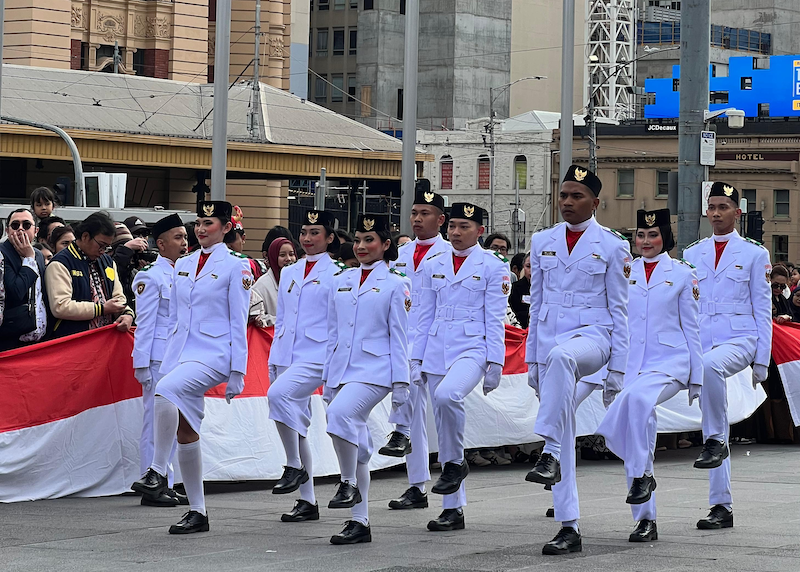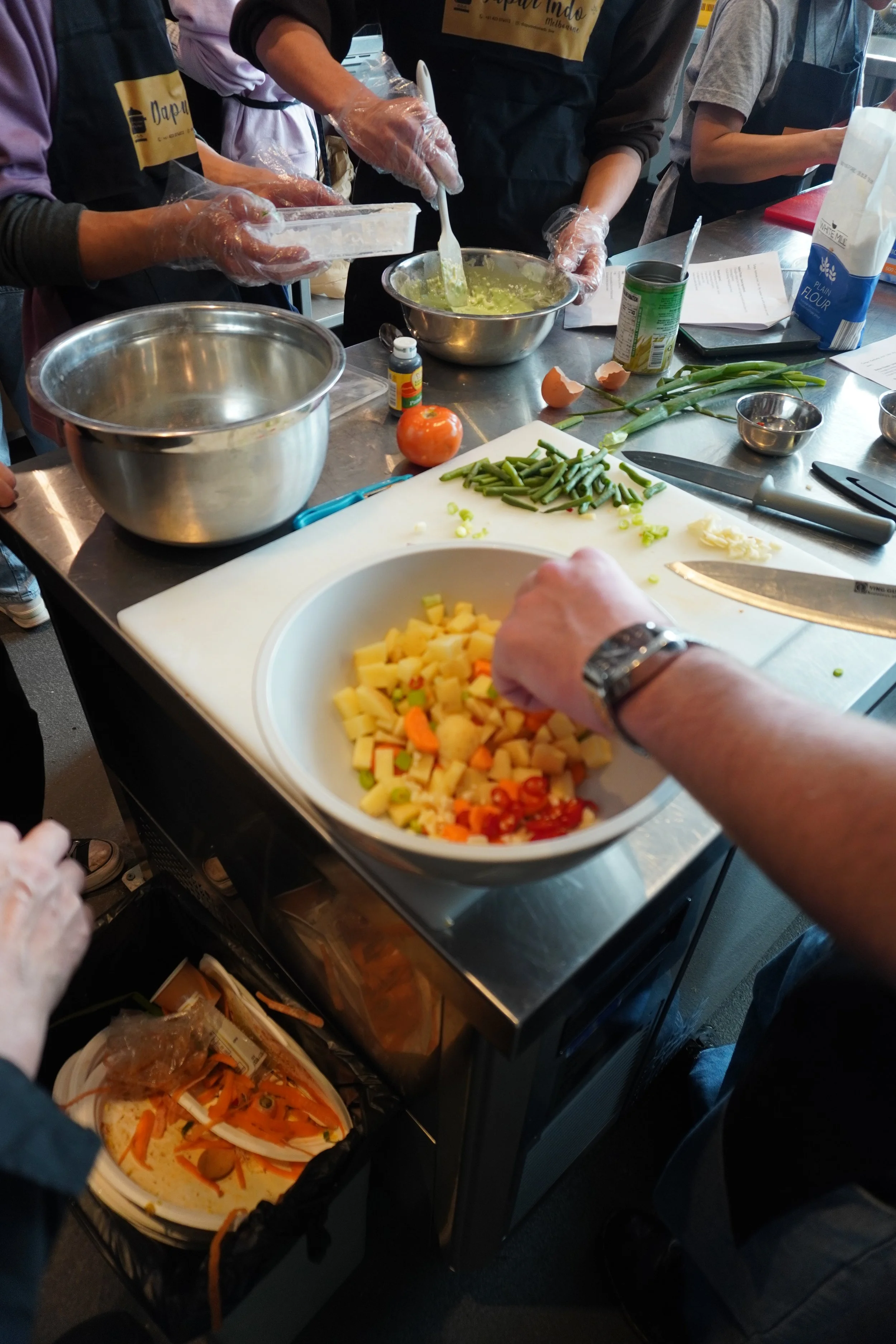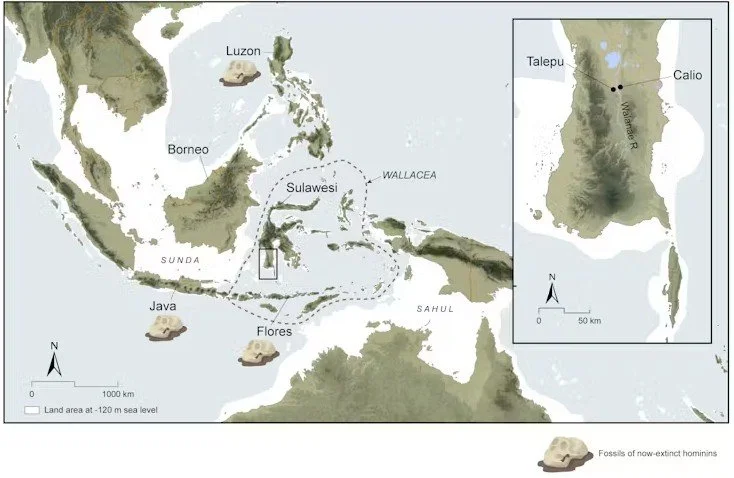Indonesia Council Digest - August 2025
This month has found me preparing for the ACICIS 30th anniversary celebrations next month in Canberra, at which I’ve been invited to speak. It’s sure to be a wonderful night, and I am looking forward to catching up with friends and colleagues to celebrate the incredible achievements of the Consortium in supporting Australian student mobility to Indonesia. There is a similar event planned in Yogyakarta of course, plus a book coming out with ANU Press filled with reflections and contributions from the ACICIS family.
I’ve used the anniversary as an excuse to go through some of my old photos from Yogya. Here are a few highlights! And if these lovely film photos of the not-so-distant past have caught your attention, be sure to jump through to our Meet our Members section, which features good friend and colleague Sharyn Graham Davies in a gorgeous orange ensemble!
Sampai bulan depan, and selamat Tujuhbelasan!
Natali
What’s happening
ACICIS Statement on UTS Program Cuts and NCP Guidelines
ACICIS has raised alarm at the University of Technology Sydney’s decision to suspend enrolments in its Bachelor of International Studies degree—one of the few courses embedding a semester or year abroad in Asia—as running counter to the Federal Government’s newly expanded New Colombo Plan (NCP) guidelines.
“This sends entirely the wrong signal,” said ACICIS Director Liam Prince. “While the NCP reforms are a welcome step, they remain dwarfed by the broader structural funding environment facing Australian universities. In effect, the NCP represents a kind of guerilla incursion by DFAT into the policy remit of the Commonwealth Department of Education.”
Prince warned that without serious investment, Australia risks dismantling the very programs needed to deliver on its Asia engagement ambitions.
👉 Read the full media release here.
Indonesia Update 2025: Navigating Climate Change
The 42nd Indonesia Update conference will be held 12–13 September 2025 at the Australian National University and online via Zoom. This year’s theme explores Indonesia’s climate change response, focusing on both mitigation and adaptation strategies.
Indonesia has pledged to cut emissions by up to 43.2% by 2030 and reach net-zero by 2060. The Update will examine how these commitments intersect with economic growth, social justice, and environmental resilience. Topics include clean energy transitions, sustainable forest management, rural and urban adaptation, and gendered perspectives on climate resilience.
Convened by Budy P. Resosudarmo and Ida Aju Pradnja Resosudarmo, this year’s Update promises rich discussion and insight from leading experts in Indonesia, Australia, and beyond.
🔗 More information and register here.
Book Launch & Discussion: Rethinking Histories of Indonesia
Join the Historians of Southeast Asia (HiSEAs) Network for the launch of Rethinking Histories of Indonesia: Experiencing, Resisting and Renegotiating Coloniality (ANU Press), a bold new volume that reconsiders Indonesia’s past through the lens of coloniality. Coinciding with the 80th anniversary of Indonesia’s independence, the book brings together 17 contributors to explore how colonial power structures continue to shape the present. In this first seminar of the 2025 Historians of Southeast Asia Network series, historians Dr Vannessa Hearman (Curtin University) and Dr Indah Utami (Universitas Negeri Malang) will respond to the book and engage the editors in a critical discussion of its contributions to Indonesian historiography.
📅 Date: Wednesday, 27 August 2025
🕔 Time: 5:00 PM AEST
📍 Location: Online via Zoom
🆔 Meeting ID: 829 3727 4043 | 🔒 Passcode: 491526
Independence Day in Melbourne
Melbourne’s Indonesian community celebrated the 80th anniversary of Indonesia’s independence in style this year, with hundreds gathering across the city for a series of cultural events, performances, and flag-raising ceremonies. At Federation Square, the Indonesian and Australian flags flew side by side, accompanied by Paskibra marching, music, and traditional displays including Reog.
Our Digital Engagement Editor, Billy Adison Aditijanto, has been busy behind the camera. Through The Perantau Podcast, he captured some of these moments in short video reels that went on to achieve record engagement across their platforms. The enthusiastic response, with positive sentiment flowing from both Indonesians in Australia and Indonesia, shows how diaspora storytelling can strike a chord when done right.
Photo courtesy of the Indonesian Consulate General in Melbourne.
Other cool stuff
Thanks to Julian Millie and Yacinta Kurniasih who have shared the following about their annual Indonesian holiday program, now in its fourth year!
The fourth annual Indonesian Language Holiday Program was held on July 9-10 at Monash University. The program is aimed at students enrolled in secondary level Indonesian, and offers two streams, one for years 9 and 10, and one for 11-12.
The program is not just about learning Indonesian language: it is also designed to give students a positive impression of Indonesian culture. Over the two days, students engaged in three participatory workshops: a silat experience (music and movement) led by members of the Australian Pencak Silat Federation (pictured); a participatory cooking workshop held in Monash’s industrial kitchen by Ibu Misnarti Durmista, and; an angklung workshop provided by Mas Razan Bahri, from the Indonesian Consulate General. The event concludes with a treasure hunt led by the Monash Indonesian Club.
The two days includes four sessions in Indonesian language from experienced teachers Astrid Dux and Sugarti Febriandi.
Why does Monash hold this event? It is intended to improve the ‘ecology’ of Indonesian language learning in Victoria. While students of French and other languages have a range of holiday programs to choose from, students of Indonesian have had very limited opportunities. This lack of support reflects poor community attitudes to the study of Indonesian. Monash holds the holiday program in the hope that school principals, teachers and parents will be encouraged by the commitment of a major public institution to the learning of Indonesian.
The program has been successful, attracting between 18 and 40 students over the four years it has been offered.
The Monash School of Languages, Literatures, Cultures and Linguistics thanks all helpers who made the program a success!
Credit: Photographs by Muhamad Argi Afriandi. Used with permission.
Publications and Podcasts
What’s Missing from Indonesia’s Women’s History?
Vannessa Hearman’s powerful piece for Inside Indonesia, “The absences that remain in a history of Indonesian women”, caught our eye this month. Reflecting on the Sunting exhibition at Jakarta’s National Museum, she highlights how women’s contributions to Indonesian history are both celebrated and selectively silenced. From the erasure of Gerwani to the sanitised portrayal of Marsinah, the exhibition reveals the ongoing tensions between historical truth and political convenience — especially under the Prabowo government.
If You’ve Been Wondering What All the Pirate Memes Were About...
Erin Cook’s latest piece in The Interpreter unpacks why One Piece’s Jolly Roger flag has become a symbol of dissent in Indonesia. As she explains, the long running and hugely popular One Piece anime series “is a classic for a reason, a tale of good people versus a draconian regime that rules with an iron fist and ostentatious decadence. The story follows Monkey D Luffy and fellow Straw Hat Pirates in a quest for treasure that would allow the gang to overthrow the evils of World Government.”
But in the lead up to the 80th anniversary of Indonesian independence, both anime fans and government critics have been flying the cartoon pirate flag beneath the national red-and-white in a savvy form of pop culture resistance that echoes past euphemisms like “Wakanda” under Jokowi. With political opposition muted in parliament, this is yet more evidence that online dissent is becoming more creative — and more visible. But is it, as some lawmakers have suggested, treason? The irony!
Early Hominins in Sulawesi: A Groundbreaking Discovery
Archaeologists in Sulawesi, Indonesia, have uncovered stone tools dating back between 1.04 and 1.48 million years — the earliest evidence of hominins on the island. Found at the Calio site by BRIN and Australian collaborators, the seven chert artefacts suggest skilled toolmaking from riverbed pebbles. This discovery, published in Nature and in many other outlets, dramatically revises the timeline of human presence in Sulawesi, previously thought to begin around 194,000 years ago.
Instead, it suggests that ancient hominins were capable of crossing seas and settling remote islands in Wallacea long before modern humans arrived, and adds Sulawesi to a growing map of early human dispersal across Wallacea, alongside Flores and Luzon. But unlike Flores, where fossils of Homo floresiensis suggest island dwarfism, Sulawesi’s larger landmass and ecological diversity raise new questions: Did its hominins evolve like the “hobbits” of Flores, or follow a different path? Either way, this major discovery demonstrates (again) that Southeast Asia is at the heart of the global story of early human evolution and seafaring.
Law, Rights, and Reform
The Australian Journal of Asian Law, volume 26 no 2, 2025 contains a number of articles related to Indonesia, all of which can be downloaded free of charge:
Ratu Durotun Nafisah and Yassar Aulia, ‘Abusive Judicial Review and the Indonesian Presidential Age Limit Case’
Mirza Satria Buana, Rahmat Budiman, Ellisa Vikalista, Yusril and Rabiatul Adawiyah, ‘Precarious Workers and Peasants in Indonesia: Human Rights and the Job Creation Law’ Jeremy Kingsley, Jamhari Makruf, Jane Senserrick and Laifa A Hendarmin, ‘Innovating the Australian Law School: The Indonesia Law, Governance and Culture Program’
Talking Indonesia has released some great new podcasts, including this one with Diah Angendari about AI policy in Indonesia – what is the government (not) doing, who is driving policy and whose interests are being prioritised? Meanwhile, listen in to Ara Simanjuntak discussing the risks that Indonesia’s palm oil smallholders are being asked to take in the name of sustainable rural development.









